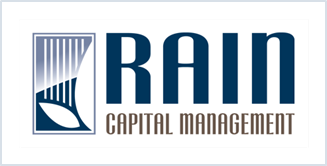As of this writing, the S&P 500 has gone 1,302 days without a correction of 10% or greater, the second longest run since World War II. As far as the untrained eye can see, risk appears to have disappeared from markets.
Larry Cao, of the CFA Institute, writes that risk factor diversification - like that used at Rain Capital - is one of the most important advances in portfolio construction techniques in recent decades and is increasingly used by sophisticated institutional investors.
The inflation conundrum dogging the US economy right now has a lot of observers scratching their heads. The economy clocked 5% real GDP growth in Q3:2014 and an estimated 2.6% in Q4. Unemployment at 5.6% is at levels that have historically begun to generate wage inflation, but there is little to speak of. Explanations range from labor market slack to deflationary pressures from abroad, but economists at the Fed are pointing markets to a simpler answer: zero interest rate policy.
Regulators are (correctly in our opinion) focusing a great deal of attention on the very different legal and ethical standards that brokers and Registered Investment Advisors (RIAs) are held to. The SEC’s concern stems from the fact that investors generally aren’t aware of the meaningful differences and their legal implications. Barry Ritholtz does a nice job summarizing these differences in a recent Washington Post column.
The market isn’t hearing the Fed’s increasingly hawkish message, according to researchers at the Federal Reserve Bank of San Francisco. The take away? The authors reiterate Chairwoman Yellen’s words from earlier this year “. . .investors may underappreciate the potential for losses and volatility going forward.”
A flurry of communication has come out of the Fed in recent days – from hawks and doves alike - all focused on the need to change forward guidance on interest rates.
Federal Reserve officials have very nearly written our letter for us this quarter. Earlier this year we worried economic data were increasingly at odds with the Fed’s policy stance, a conflict that would eventually result in a sharp change in tone from the central bank.
A new interest rate cycle is upon us. The Fed has said – and the market is largely in agreement - that within a year short-term interest rates are likely to rise. We have already spent considerable effort purging interest rate risk from portfolios.
Fed Chairwoman Janet Yellen joked in her speech today at the Economic Club of New York, “if the economy obediently followed our forecasts, the job of central bankers would be a lot easier and their speeches would be a lot shorter.”



